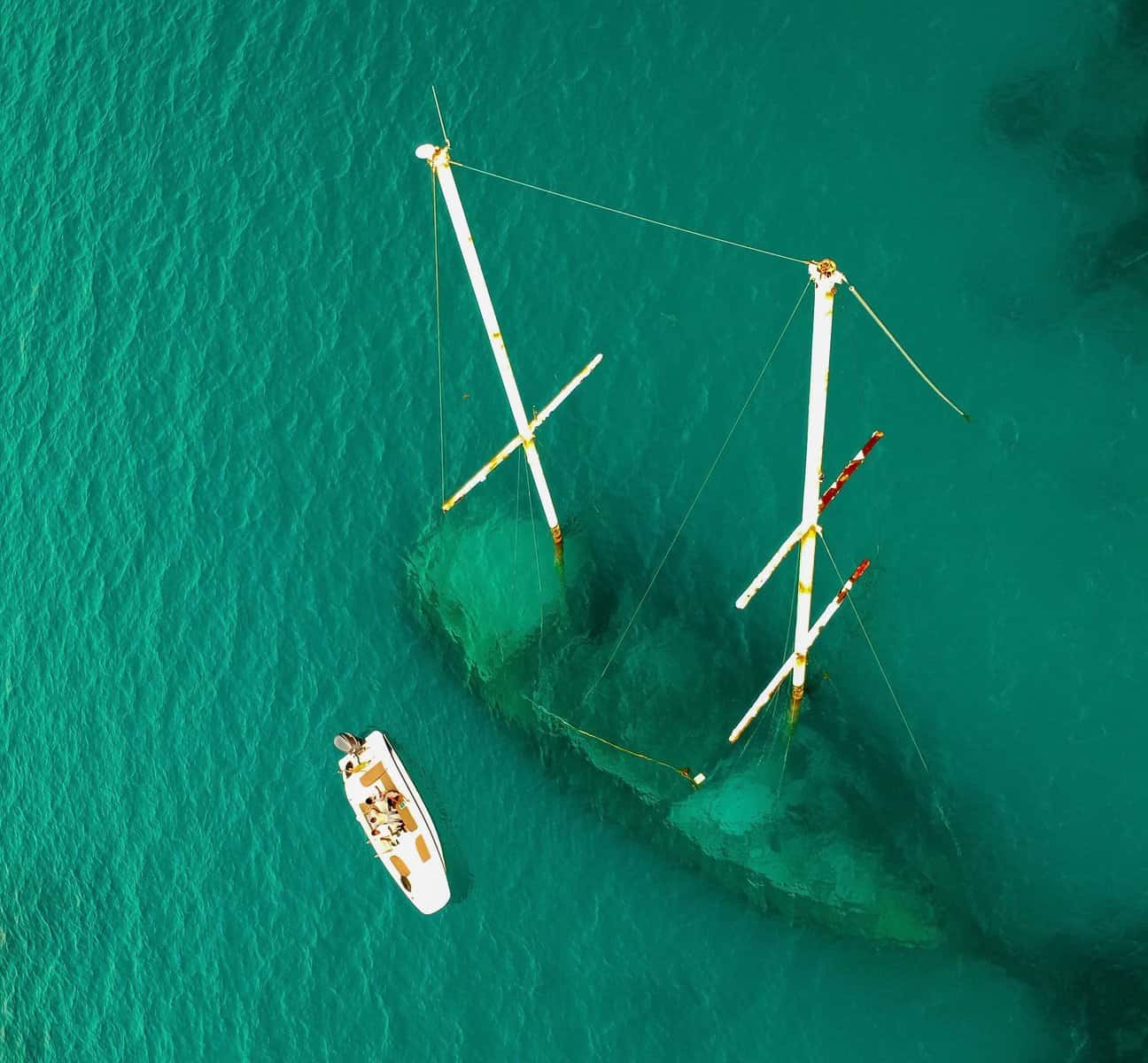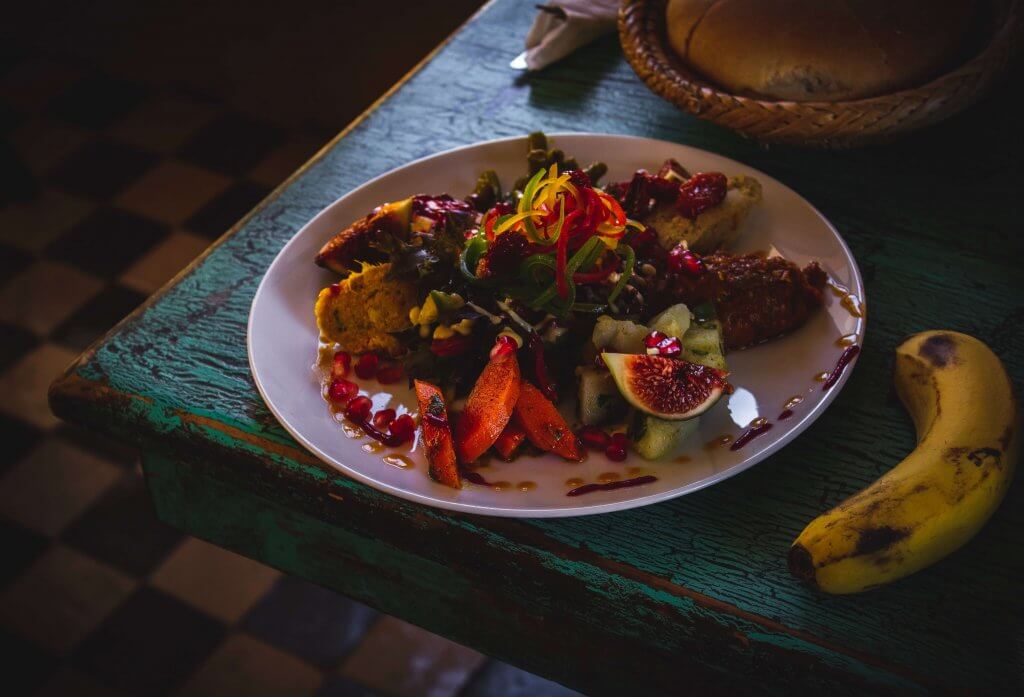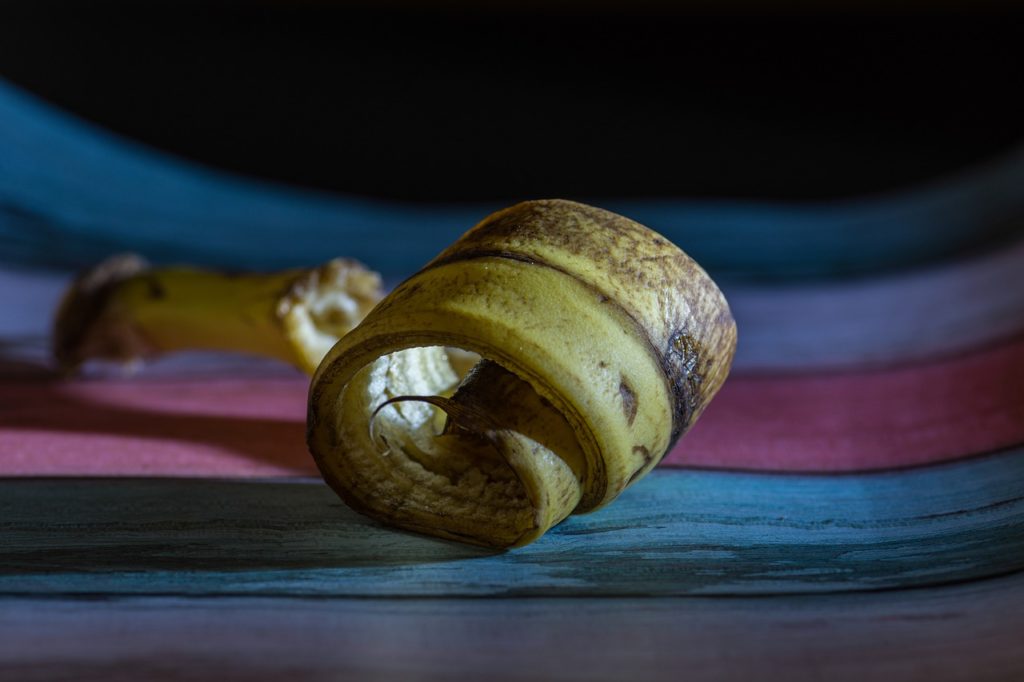Fishermen and sailors, in general, can be a very superstitious bunch. It’s hard to blame them, I would be too if I spent most of my days in a hand-crafted wooden/metallic ship at the mercy of thousands of miles of water.

Seriously, whoever those first humans were, that thought “hey, you know, I should jump on a tree and go see what’s on the other side of all that blue…” have all of my respect and admiration.
Of their superstitions, one of the most interesting ones is this: you should never bring a banana on a boat. There are 2 reasons why I love this superstition: 1) nobody fully understands where it comes from, and 2) it involves bananas!
Let’s dig into possible origins for this old fisherman’s tale.
1. Bananas Float!
As with most fruits, bananas aren’t dense, so they float in water – especially in salt water. One possible theory for the origin of this theory is that the massive barges and sloops roaming the Caribbean waters in the 17th century would carry the local fruit of choice, bananas. In the event of a ship capsizing, amongst all the wreckage, the bananas would float to the surface.
Imagine being an early explorer, paddling up to a wreckage and seeing an eerie wash of yellow spread across the entire wreck. You might reconsider bringing a certain yellow fruit on your next voyage!
2. A Fruity Plague
Another, more scientifically founded theory, is based on the fact that bananas secrete ethylene gas as they ripen, which causes organic foods in the vicinity to rotten quickly. This is part of why solo bananas go brown much lower (add that to our list of bewildering banana facts!)
As a result, those old wooden frigates making the long journey to the new world would be bewildered to walk downstairs into the basement and find all of their food laid to waste!
While it’s a functional theory, it’s probably not accurate – bananas aren’t the only ethylene producing fruits. In fact, nearly as many fruits produce ethylene gas as are sensitive to it! Unfortunately, the superstition doesn’t say “no fruits on a boat!”, so we can consider this myth busted.
3. Creepy Crawlies
Ever heard of phoneutria? It’s a fancy scientific term for a genus of spiders known colloquially as, yes, “banana spiders”. They’re a creepy genus of spiders featuring long hairy legs and an iconic red chest – a bite from a banana spider can lead to everything from paralysis & intense pain, to death.
There has long been a belief that phoneutria spiders lurk in banana packages, which may be the root of our superstition. In fact, as recently as 2005 a man was killed by a spider bite emerging from a banana package.
However, later studies have found this belief to be false. While phoneutria can be found in banana shipments, it’s quite rare, and other breeds often show up more (not that that helps me sleep any better!).
4. A Self-Fulfilling Prophecy
A more cynical answer to the question of this superstition’s origins is that the superstition itself is cyclical. At some point the belief popped up, which led to sailors sailing faster than they should to reach their destination, leading to more sinking ships (not to mention less fish being caught!), leading to the legend growing.

This is probably true – superstitions have a tendency to puff up their own legend over time. However, it doesn’t explain how the fear started in the first place, so we’re back to the drawing board!
5. A Cartoonish End
What’s the most common trope in children’s cartoons you can think of? You’re probably thinking of slipping on a banana peel.
Long a staple of physical comedy, it’s been recently demonstrated that it can and does happen. Yes, grown adults around the world have indeed fallen by slipping on a banana peel – I really can’t imagine a more embarrassing way to go down.
Could it then be that the sailors of yore were chucking banana peels up and down their dirty deck, and in the already rocking motion of the ocean often slipping and falling? It sounds far too silly to be true – but we can enjoy that mental image for a while.
6. Drunken Piracy
Banana beer – and general liquor from bananas – were the most popular form of alcohol consumed throughout the polynesian coast and the pre-colonial caribbean. Rotting (and thereby fermenting) far quicker than other fruits and vegetables (and something-in-betweens), banana-based liquor was probably very commonly consumed by seafaring 17th-century explorers.
Rather than blame the rum (who would ever accuse the rum?), doomed voyages may have been blamed on the crates of rotting bananas – and not the drunk driving navigator knee-deep in a 3-day banana bender!

Conclusion (?)
« Are Bananas Good For Weight Loss or Weight Gain?
How to Remove Warts With Banana Peels »
It’s unclear where this superstition initially came from and, frankly, none of the popular theories described above sound particularly plausible. Man-eating spiders, comical catapults and drunk driving sound more like wives tales themselves than an actual source of superstition. Like all old wives tales, it’s probably a silly rumor that spread over time – and it’s oddity just kept the legend growing.
Nonetheless, we’d recommend bringing as many bananas as you can on a boat! There’s no shortage of health benefits this wonderful fruit brings, and it just might perk up and otherwise dreary early morning fishing trip.
And who knows? Maybe you’ll figure out the source for that old legend while you’re out there.

















